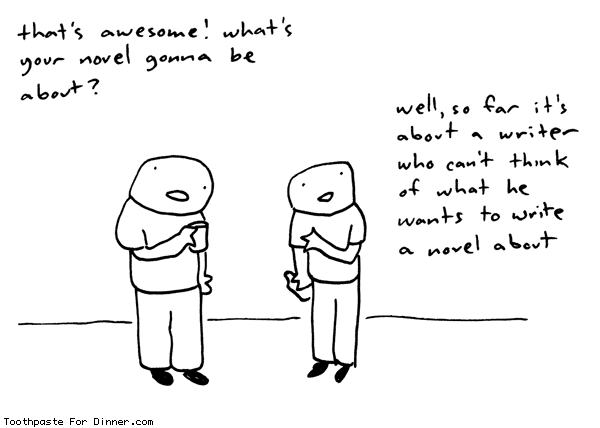
On Tuesday in class, we talked a little bit about the importance of the learning that happens outside the classroom in college, and I wanted to extend our discussion because I think it's very true. Getting involved in clubs and organizations can help you learn leadership, networking, organizing, community outreach, skills in your major or interest areas, and more. But learning outside the classroom is also very real in terms of academics and the courses you take in college. Much of your education is self-education, the kind that happens outside of class, what most students call "studying."
When people say "studying," do they mean reading, or reveiwing notes, or something else? What do professors mean when they say that they expect students to be doing 6 hours of homework per week but the syllabus doesn't show any actual assignments due on that week? What are you supposed to be "studying" for 6 hours?
I mentioned in class that, in college, there is often a lot of invisible work expected (as opposed to papers or projects which seem like visible work to me). Some of the invisible work involves not simply reading the assigned chapters to be familiar with them or even simply reading for information; instead, it is the kind of reading and annotating and processing and thinking that can bring real
understanding of the concepts you're reading about to the point where you can engage with, talk back to, appply, etc.
Ok, but how do you do that? And if you've never been expected to have done that before, how do you know if you're doing it right?
As with most things in college, there is no one set formula that works for everyone, and part of your job in your first year is just figuring out what works for you. But here are a few strategies that you can try out:
1. Read assignments more than once. The first time you read it to know the gist of it, read for information. The second time, you read to begin to understand the finer points and subtleties. The third time, return to a few interesting and/or difficult passages to analyze and puzzle through.
2. In taking notes, make sure you have the different layers of thinking (higher and lower) represented in your notes. You should have some of each of the following represented: information or facts pulled out, comments and connections, and inquiry questions. If you take your notes in the margins of a reading, maybe afterward pull them out and classify them into this lower-to-higher level system. Or if you take notes in your notebook, use symbols or colored highlighters to classify them.
3. Dig deeper into the concepts by researching about the author or the context or unfamiliar terminology. This will allow for a broader understanding of what you're reading.
4. Expand yor knowledge base even more by comparing the reading material to previousle assigned texts, putting them into conversation with one another within the course but also putting your readings into conversation with other material you're studying in the university as a whole. This tactic will help you see the connectedness between the disciplines at the university, and that helps your brain make sense of all of the information you are processing.
5. Before you put a reading to bed, consider the "So what?" and "Why is this important?" and "What can I learn from this?" questions. Try to anticipate what the professor might ask aboout the reading on a quiz or exam or writing prompt. Try to think of good inquiry questions that will make class discussion about this reading interesing and productive and enhance learning.
Try these strategies (as well as your own or ones you have gained from this week's reading assignments) for reading with the goal of in-depth understanding of the material and see if it makes class discussion or lectures more meaningful or engaging. See if this helps you also have more of those "lightbulb moments" as you progress throughout the semester. Then you'll know that you are truly becoming educated rather than simply filling time or fulfilling requirements.
*image by Ramona Forcella




